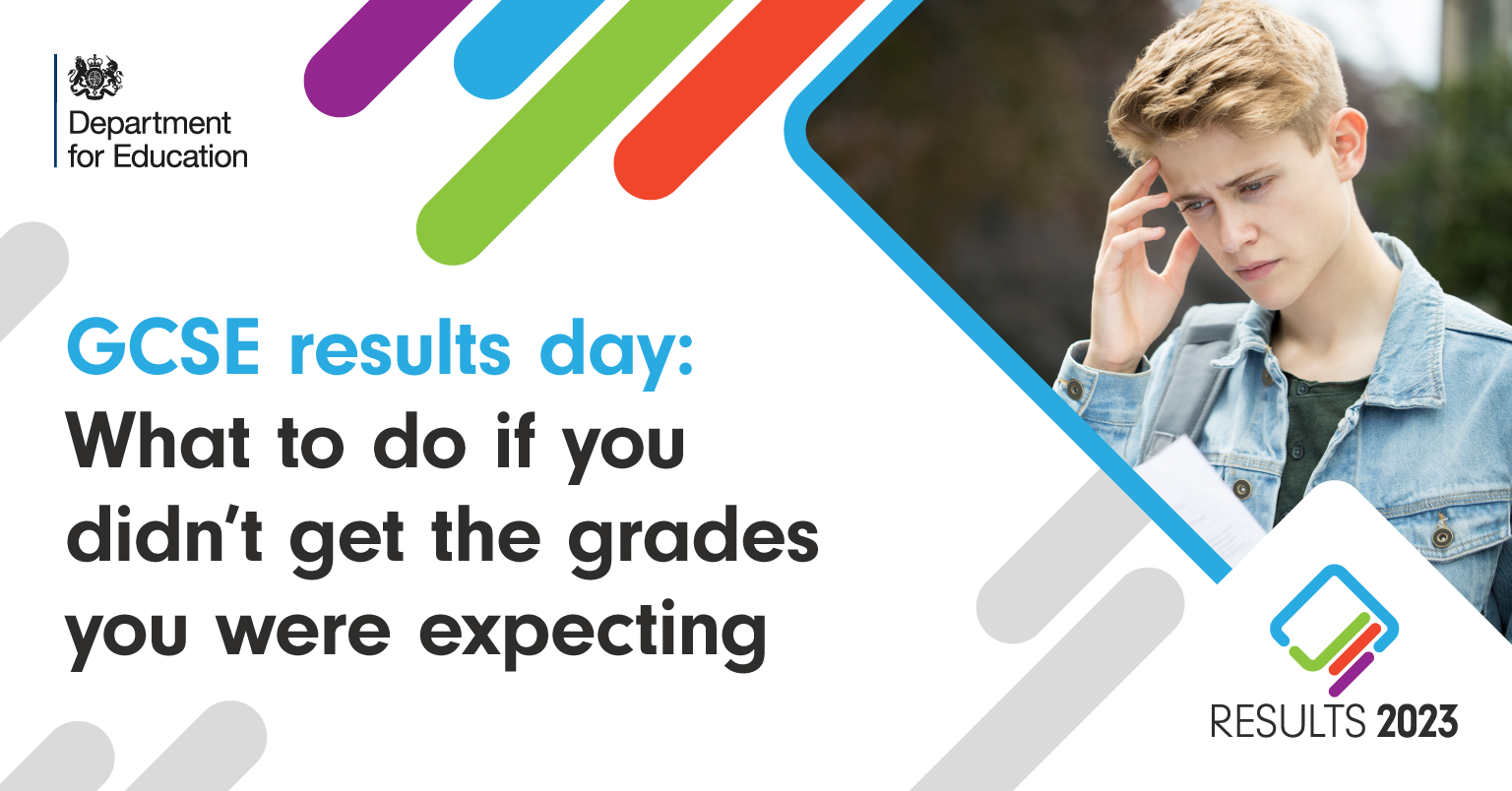
Pupils across the country will have found out their GCSE results today.
Exams and grading return to normal this year, meaning grades have only been determined by the number of marks achieved in your assessments.
For students moving on to A levels and T Levels, most courses require at least 5 GCSEs at grades 9 to 4, including English and maths.
We know that results day can be stressful, but don’t worry – even if you don’t get the grades you were expecting, you have plenty of great options out there. Here we talk you through your choices.

What are my options if I want to follow my original plan?
Speak to your school or college
Speak to your first choice sixth form or college – they might be flexible about their entry requirements, especially if you only narrowly missed your grades.
Even if you don’t get the grades you need, your college might let you retake a GCSE while you study for your A or T levels.
Resit
If you’re unhappy with your results you can enter for all GCSE subjects in summer 2024. You can also take autumn exams in GCSE English language and maths. Speak to your sixth form or college to decide when it’s the best time for you to resit an GCSE exam.
You'll need to continue studying English and maths if you're under 18 and did not get at least a grade 4.
I’m open to other options
Look for other courses with different requirements
Entry requirements vary depending on the college and course. Ask your school for advice, and call up your college or another one in your area to see if there’s a space on a course you’re interested in.
Some T Levels and vocational technical qualifications (VTQs) have different entry requirements to A Levels. These are high-quality, career focussed options that will help you get the skills you need to progress in the area you’re interested in.
Consider an apprenticeship
If you’re 16 or older, you can do an apprenticeship and there are now more than 670 high quality apprenticeships in a wide range of roles. Apprentices earn while learning, gaining valuable on-the-job experience that can jumpstart your career, while you receive training at university or college.
We’ve selected some existing apprenticeships that we think are perfect first jobs. These are called career starter apprenticeships. Career starter apprenticeships are available in a range of exciting industries, such as engineering, teaching, healthcare and digital.
If you can’t find a career starter apprenticeship that you like, you can search all apprenticeships as most apprenticeships are excellent first steps to take after you leave school.
Entry requirements vary depending on the employer, training provider and level of the apprenticeship, and many require English and maths GCSEs.
If you don’t have qualifications in English and maths, some apprenticeships include extra training in the English or maths skills needed so you’re at the right level.
What if I’m not sure what I want to do?
Talk to a National Careers Service (NCS) adviser
Whatever your results, you have lots of options – there is more than one route into higher or further education and the workplace, and it’s not always grades which are the most important thing
First of all, you should talk to your school or college to discuss your options. Friends and family can also be a source of support to bounce ideas off, but it can be useful to talk your plans through with an impartial expert.
You can speak to a professional adviser for free and get judgment-free, confidential information and advice via the National Careers Service Exam Results helpline, via phone on 0800 100 900 or by webchat.
Whatever your results, if you want to find out more about all your education and training options, as well as get practical advice about your exam results, visit the National Careers Service page and Get the Jump to explore your study and work choices.
What if I think there’s something wrong with my results?
Speak to your school or college for advice
There is a rigorous system in place which makes sure that exams are marked fairly and accurately.
If you think there has been a mistake in how your exam was marked, you should speak to your school or college who can request a review from the exam board.